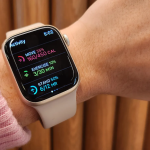Colorado Governor Signs Landmark Law Protecting Consumers’ Brainwaves

Colorado Governor Jared Polis made history by signing into law the first measure in the United States aimed at safeguarding the data extracted from an individual’s brainwaves. The legislation comes in response to the rapid advancements in neurotechnology, which have made the scanning, analysis, and monetization of mental data increasingly feasible and profitable.
Sponsors of the bill emphasized the necessity of such legislation as neurotechnology extends beyond medical and research settings into consumer products, where it currently operates without regulatory oversight or established data protection standards. State Representative Cathy Kipp, one of the bill’s sponsors, underscored the need for a clear framework to protect Coloradans’ personal data while still fostering the development of innovative neurotechnologies.
State Senator Kevin Priola echoed these sentiments, highlighting the industry’s lack of regulation, data protection standards, and ethical constraints concerning consumer products utilizing neurotechnology. The Neurorights Foundation, a non-profit advocating for the ethical advancement of neurotechnology, hailed Colorado’s legislation as a groundbreaking step in safeguarding individuals’ rights in the burgeoning field of neurotechnology.
The foundation’s report, released concurrently with the bill’s signing, assessed the data privacy protections within the neurotechnology industry, revealing widespread weaknesses or absence of such protections. Colorado’s new law fills a crucial gap by extending data privacy regulations to consumer products outside of clinical settings, complementing existing medical privacy laws that cover neurotechnologies used in healthcare settings.
The implications of unregulated neurotechnology are significant, with big tech firms like Meta Platforms and Elon Musk’s Neuralink exploring brain activity detection for commercial applications. These applications range from targeted advertising to mood manipulation and brain function restoration, highlighting the immense potential and ethical concerns surrounding the monetization of mined brain data.
The regulatory landscape surrounding neurotechnological products is evolving globally, with governments worldwide seeking to enhance consumer protections in this rapidly advancing field. In the United States, the FDA’s approval of human studies for Neuralink’s brain implants and the forthcoming clinical trials by companies like Synchron underscore the urgency of establishing robust regulatory frameworks to ensure the responsible development and ethical use of neurotechnologies.





